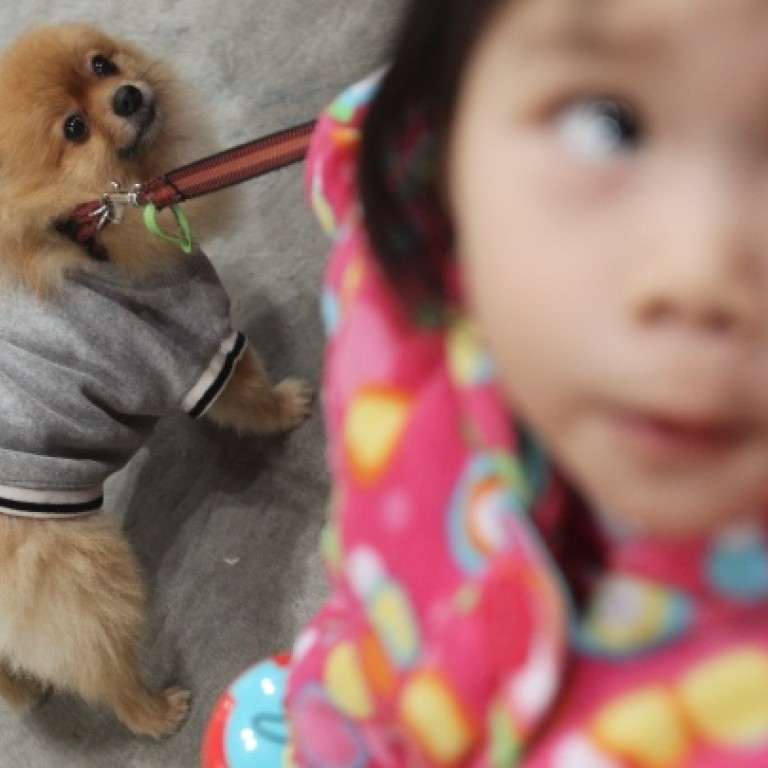
Hong Kong's pets spread diseases
Pet lovers in Hong Kong are a vocal lot. It is becoming difficult to find a decent walk on Hong Kong Island without encountering furry pets.
Keeping a pet is a personal lifestyle choice. It should not affect and infringe the rights of neighbours and the general public.
Dogs were once wild animals and really should not be living cheek by jowl with humans in high-rises with shoebox-sized flats. I found on Google that families who keep dogs are at greater risk of being infected by intestinal worms.
Fleas and ticks on pets are not only disgusting but can carry infectious diseases.
The World Health Organisation has pointed to animals as being the most likely carriers of the world's next health epidemic.
Let's not even mention common nasal allergies to fur and dander (up to 30 per cent of the population in the United States), and the possibility of a child and others being bitten by a misbehaving dog.
Someone may choose to accept these pet-keeping risks for the benefits the pet brings.
That is fine as long as his pet is kept within the confines of his own property. His neighbours and the public should not have his personal choice and attendant risks forced upon them.
Whether along the Repulse Bay promenade, or the streets of Jardine's Lookout or The Peak, dog faeces abound.
Dogs "being walked" are held on the leash by foreign helpers chatting away to each other, or on the mobile.
The dogs are often stationary, or are following behind on a leash.
The poop goes unnoticed, except by flies, and the next unlucky pedestrian.
My suggestions are firstly that dog poop is as much litter as any other litter, and worse by being organic and potentially an infectious agent.
Both dog walkers and dog owners should be penalised: not merely a monetary fine, but also a requirement to personally clean the streets of dog poop for a designated number of hours as community service.
Also, the government must designate long stretches of promenades and walks that are "human-friendly" or "baby-friendly", so that taxpayers can happily enjoy the public recreational facilities they have helped pay for, without being forced to suffer furry pets, their dander and their droppings, flies and fleas.
